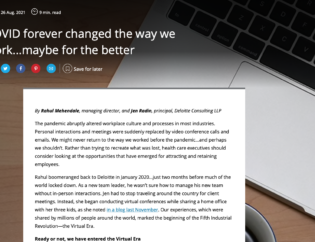
Dr. Travis Bradberry Dr. Travis Bradberry est un influencer Chief People Scientist at LEADx and #1 bestselling author Emotional Intelligence 2.0
In The Empire Strikes Back, when Yoda is training Luke to be a Jedi, he demonstrates the power of the Force by raising an X-wing fighter from a swamp. Luke mutters, “I don’t believe it.” Yoda replies, “That is why you fail.”
As usual, Yoda was right—and science backs him up. Numerous studies have proved that confidence is the real key to success.
Studies exploring the performance gap between men and women in math and spatial skills have found that confidence plays a huge role. Women who were asked to identify their gender before taking a spatial skills test performed more poorly than those who weren’t. Women also performed better when they were told to envision themselves as men, and both genders performed better when they were told that their gender is better at the task.
What’s even more interesting is that the gender gap practically disappeared when participants were required to answer every question. Apparently, when the women were allowed to skip questions, they did so not because of a lack of knowledge, but because of a lack of confidence.
“If you hear a voice within you say ‘you cannot paint,’ then by all means paint, and that voice will be silenced.” — Vincent Van Gogh
True confidence is very different from egotistical swagger. When people believe in themselves and their abilities without bravado, there are certain things they simply don’t do.
They don’t make excuses. If there’s one trait confident people have in spades, it’s self-efficacy—the belief that they can make things happen. It’s about having an internal locus of control rather than an external one. That’s why you won’t hear confident people blaming traffic for making them late or an unfair boss for their failure to get a promotion. Confident people don’t make excuses, because they believe they’re in control of their own lives.
They don’t quit. Confident people don’t give up the first time something goes wrong. They see both problems and failures as obstacles to overcome rather than impenetrable barriers to success. That doesn’t mean, however, that they keep trying the same thing over and over. One of the first things confident people do when something goes wrong is to figure out why it went wrong and how they can prevent it the next time.






